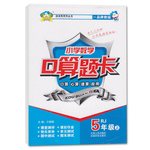题目内容
—Why has Mr. Green been busy going to the library recently?
— ready for the public speech.
A. Get B. To get C. Having got D. Getting
B

 小学教材全测系列答案
小学教材全测系列答案 小学数学口算题卡脱口而出系列答案
小学数学口算题卡脱口而出系列答案 优秀生应用题卡口算天天练系列答案
优秀生应用题卡口算天天练系列答案 浙江之星课时优化作业系列答案
浙江之星课时优化作业系列答案Elizabeth and I are 18 now, and about to graduate.I think about our elementary-school friendship, but some memories have blurred (模糊).What happened that day in the fifth grade when Beth suddenly stopped speaking to me? Does she know that I've been thinking about her for seven years? If only we could go back, and discover what ended our relationship.
I have to speak with Beth.I see her sometimes, and find out school is "fine".It's not the same.It never will be.Someone says that she's Liz now.What happened to Beth?
I can't call her.Should I write? What if she doesn't answer me? How will I know what she's thinking?
Yes, I'll write her a letter.These things are easier to express in writing." Be-," no, " Li-," no, " Elizabeth," I begin.The words flow freely, as seven year old memories are reborn.I ask her all the questions that have been left unanswered in my mind, and pray she will answer.I seal my thoughts in the perfect white envelope, and imagine Beth looking into her mailbox.W ill she know why I'm writing? Maybe she once thought of writing the same letter.
ill she know why I'm writing? Maybe she once thought of writing the same letter.
As the mailman takes my envelope from me forever, I wo nder if I've made the right decision.Do I have the right to force myself into Beth's life again? Am I simply part of the past? I have taken the first step.Beth has control of the situation now.
nder if I've made the right decision.Do I have the right to force myself into Beth's life again? Am I simply part of the past? I have taken the first step.Beth has control of the situation now.
One day has passed.Are my words lying on the bottom of the post office floor?
Two days are gone.I'm lost in thought and don't even hear the phone ting.
"Hello? It's Elizabeth."
【小题1】What can we learn about Beth?
| A.She had a quarrel with the author in the fifth grade. |
| B.She moved to another school in the fifth grade. |
| C.She is now called Liz instead of Beth. |
| D.She hasn't seen the author for seven years. |
| A.She is sure that Beth will not answer. |
| B.She's afraid that they'll quarrel on the phone. |
| C.She doesn't know Beth's telephone number. |
| D.It is easier to express her feelings in writing. |
| A.Their elementary-school friendship. |
| B.Her future plan after graduation. |
| C.Her expectations for Beth's reply. |
| D.The questions about the endings of their friendship. |
| A.Beth answers her letter two days later. |
| B.The letter doesn't reach Beth at all. |
| C.They make up their friendship. |
| D.Beth refuses to make peace with her. |
I'm feeling sad.My 19-year-old∞nleft home about a week ago to 36 the Air Force, and my 23-year-old daughter left two days ago to marry in another state.I'm so 37 of my son as he had to really work hard to get into the Air Force, and my daughter moved to be with her fiance(未婚夫).I'm just simply upset.It 38 feels like someone has ripped my heart from my chest.I’ve tried to talk to their father, friends, and family but it just feels like no one around me 39 what I'm going through.
My children were 40 to me.I put all my energy into 41 both of them and doing all types of activities with them, even sometimes at the 42 of my own best interests.I understand they grow up and need their _43 ,but for some reason I just can't seem to let go.I am go _ 44 that they're establishing their own lives, 45 I get so depressed whenever I have even a simple _46 of them.I've been crying for over a week now.I really don't know what to do to make this 47 go away.I can't even walk by either one's room without bursting into tears.I don't understand why I'm unable to _48 this sense of great loss.I'm 49 that I need to move on with my own life and find _50 things to devote my attention to, but I _51 being a mom and spending time on my children.I've 52 adopting a child but it's _53 atthe moment for me considering my poor health.
I'm just thankful to have found this website and found there are others who are 54 similar problems.It helps to 55 I'm not crazy or overreacting.Thank you for sharing your problems and showing others like myself this isn’t so abnormal.
|
1. |
|
|
2. |
|
|
3. |
|
|
4. |
|
|
5. |
|
|
6. |
|
|
7. |
|
|
8. |
|
|
9. |
|
|
10. |
|
|
11. |
|
|
12. |
|
|
13. |
|
|
14. |
|
|
15. |
|
|
16. |
|
|
17. |
|
|
18. |
|
|
19. |
|
|
20. |
|